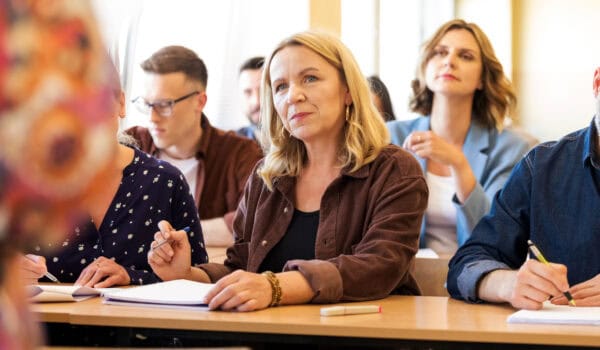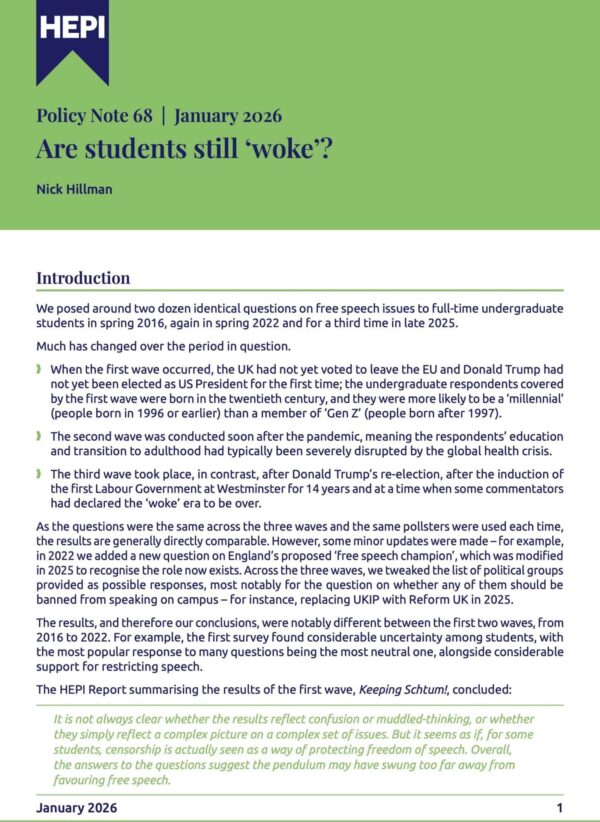WEEKEND READING: A thousand days of silence: reclaiming education through localisation for Afghan women
This blog was kindly authored by Naimat Zafary, PhD student at The University of Sussex and a former Afghan Chevening Scholar.
As I mark my fifth year in UK higher education, a journey that began with a Chevening Scholarship and an MA at the Institute of Development Studies before leading to my PhD in the School of Global Studies at the University of Sussex, a single, recurring image encapsulates a profound contrast.
From my study window on campus, I watch the vibrant flow of students: a tide of ambition pouring into and out of lecture halls. In a silent, personal ritual, I often count them. Invariably, I find more young women than men, a sight that swells me with pride to be part of an institution that offers equal and abundant opportunities to female students.
Yet, this everyday scene instantly transports me to my home of Afghanistan, where this picture is hauntingly absent. For nearly three years – around 1,050 days – the Taliban has barred Afghan girls and women from their fundamental right to higher education. Their university campuses, once symbols of hope, are now forbidden ground.
Beyond internationalisation
The start of the academic year is a time of new beginnings for UK universities. There is a mood of anticipation, proudly announcing numbers of new starters and, on my own diverse campus, a commitment to internationalisation. Students arrive from across the world, a myriad of stories behind each of them. For some, a struggle, for others, lifelong dreams of individuals and families.
If we are lucky, we will share some of these experiences and perspectives with the people around us. We will define our possibilities differently as a result. This focus on global reach is commendable and a deep privilege. We are – we become – international.
But I ask myself a sharper question too. What of those who do not, cannot travel? How do we consider the community which includes the missing, the trapped?
So, as I look across campus, I see these faces too. Will institutions that are committed and measured in part in relation to the sustainable development goals – every one of which is behind – take a step to localise, to go to those who cannot come to them?
British higher education has a long history of outreach. Many of its now great universities began as an effort to take learning and opportunity to provinces where it was absent, or to include within its potential those who, at one time, were told education was not for them.
That widening participation agenda is now under strain at home and abroad. If you measure the outcomes only of those blessed with an environment and the support to succeed, you implant a bias away from risk. If you effectively close off the means of access, the hopeful will turn away. Participation can narrow as well as widen. In some cases, participation can stall completely – those desperate to continue their dreams, whose voices are screaming to be heard, and who are simply waiting for a chance?
Who will answer the call?
In the worst of times, those who step forward, demonstrate they care and – despite their own challenges – stand against this injustice are living the most profound values of education.
Here again, I look out at my campus at The University of Sussex with pride, and I believe there are lessons for others too.
It begins with leadership and with kind-hearted teams, but also a desire to turn feeling into action. In this case, despite headwinds of practical barriers, the university has undertaken a pilot and has awarded online distance learning master’s degree scholarships for a small group of talented Afghan women and girls.
The inspiration for this initiative was born out of a stark contrast. As female Afghan Chevening scholars walked across the Sussex graduation stage with pride, in Afghanistan, not a single woman could enter a university, let alone a graduation ceremony. I longed for those with the potential of taking action to hear the voices of Afghan women and somehow open a door, even for just a few.
Developing an outreach programme in such a sensitive context isn’t easy. Universities have their own urgent challenges close to home, and the many demands they face don’t pause while they innovate in global education. But principled leaders took the challenge of the absence of women in higher education a world away to their own core, and recognised that this too was their business.
Finding a possible solution took time: more than two years of proposals; assessing the situation; back-and-forth communication; and ensuring we were always working in line with advice on ensuring the safety of participating students. It was modest, but it matters beyond words.
The logic was beautifully simple and necessary: if Afghan women are banned from stepping into the higher education arena, then higher education must step into their own room. This is a practice the Western world embraced during the pandemic; we simply need to apply it now to find a light in the darkness.
An undefeated hope
The proof of this need was instantaneous. In early July 2025, the University of Sussex’s announcement went live. Within the first 48 hours, more than eight hundred women and women sent an inquiry and applied for the scholarships.
That response sent a clear, undeniable message of a thirst and love for education, of persistent talent, eligibility, and an undefeated hope for the future. And now it begins. The five talented women awarded these scholarships have started on the first of these courses with an unwavering commitment.
One of the awardees described her gratitude this way:
As an Afghan woman achieving this milestone under such challenging circumstances has been both difficult and deeply meaningful. I am committed to making the most of this opportunity and to using the knowledge and skills I gain to contribute toward strengthening and supporting our fragile communities.
These students are proof that Afghan women are not defeated even in this brutal hour. They may have to learn behind legal bars for now, but they believe in a better future, they are determined to serve their community and contribute to wider society — given the chance, they will change their lives and the lives of those around them.
Deeds not words
To my colleagues and friends in UK higher education, I humbly say this. Our institutions are built on the foundational motto of “leaving no one behind” – no one, not even the women whose doors are bolted but whose spirits still crave learning.
I profoundly hope the UKhigher education community will look closely at the successful case of the University of Sussex, draw on the experience of this pilot and follow its lead. One programme could become many. A single voice could become a chorus.
Afghan girls and women are navigating one of the most catastrophic times in their history. The education of women is core to the UN Sustainable Development Goals for good reason. Those who step up now, who provide a lifeline through education in this moment of darkness, will not only be remembered – they will be helping to shape the very future of Afghanistan. As the suffragists once chanted in this country, this is a time for Deeds Not Words.
I ask each of you not to write off hope. A dear friend shared a poem with me, which is much loved across this country. It was written by the great War poet Siegfried Sassoon at a time of despair, but it continues to move people because it defiantly imagines a time of release and redemption.
Everyone suddenly burst out singing;
And I was filled with such delight As prisoned birds must find in freedom…
My heart was shaken with tears; and horror Drifted away … O, but Everyone
Was a bird; and the song was wordless; the singing will never be done.
There are times a university keeps hope alive, where a pilot programme is a flame visible across the world. It is the promise of a better future through the empowerment of those who wish desperately to build it.
A good deed can be multiplied. If Afghan women students cannot come to us, let us join together as a band of scholars and go to them.
If any university colleagues would be interested in understanding more about the Sussex pilot to offer online postgraduate access to Afghan women, please contact [email protected].







Comments
Kalpna says:
Thank you for sharing this powerful piece on reclaiming education for Afghan women it’s a vivid reminder of the resilience and hope that localised efforts can spark. I recently used this link https://www.studyinuk.com/
to explore UK higher-education opportunities and felt inspired by how global and accessible learning can be.
Reply
Tabasom says:
it was an amazing paragraph for me and tok lots of motivation from this.
Reply
Add comment